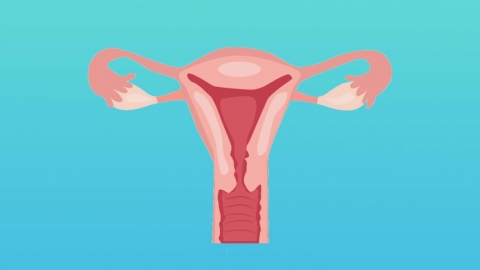What is the most obvious symptom of a uterine diverticulum?
Generally speaking, there is no specific "most obvious symptom of uterine diverticulum." Common symptoms of uterine diverticulum include menstrual abnormalities, lower abdominal pain, pain during sexual intercourse, abnormal vaginal discharge, infertility, and others. If discomfort occurs, it is recommended to seek timely consultation and treatment at a qualified hospital. Detailed explanations are as follows:

1. Menstrual abnormalities: After the formation of a uterine diverticulum, the uneven surface of the diverticulum can cause poor menstrual blood drainage, with some blood accumulating inside the diverticulum. After menstruation ends, the accumulated blood flows out slowly, causing prolonged menstrual cycles, prolonged spotting, or post-menstrual bleeding.
2. Lower abdominal pain: Long-term blood accumulation within the diverticulum may lead to infection, which can stimulate uterine smooth muscle contractions and cause pain. Additionally, retrograde menstrual flow into the pelvic cavity can cause pelvic inflammatory disease. The inflammation can then irritate surrounding tissues, resulting in a feeling of pressure or dull pain in the lower abdomen, particularly noticeable during menstruation.
3. Pain during sexual intercourse: During sexual activity, contact or pressure from the penis on the uterus with a diverticulum can stimulate local sensitive tissues. Combined with possible inflammation of the diverticulum, these dual factors can cause pain during sexual intercourse, affecting sexual satisfaction.
4. Abnormal vaginal discharge: Local infections caused by uterine diverticula can lead to increased vaginal and cervical discharge. The discharge may appear yellowish, become thick and sticky, and may also have an unpleasant odor. In severe cases, blood streaks may be present in the discharge.
5. Infertility: Poor blood circulation and altered microenvironment in the endometrium at the site of the diverticulum can affect embryo implantation. Meanwhile, menstrual abnormalities and pelvic inflammation caused by the diverticulum can interfere with normal reproductive physiological processes, reducing the chance of conception and potentially leading to female infertility.
If a uterine diverticulum is suspected, patients should avoid strenuous exercise and excessive fatigue, maintain external genital hygiene, and undergo standardized treatment under a doctor's guidance. Maintaining a balanced diet and avoiding smoking and alcohol consumption in daily life can help reduce symptom recurrence.




